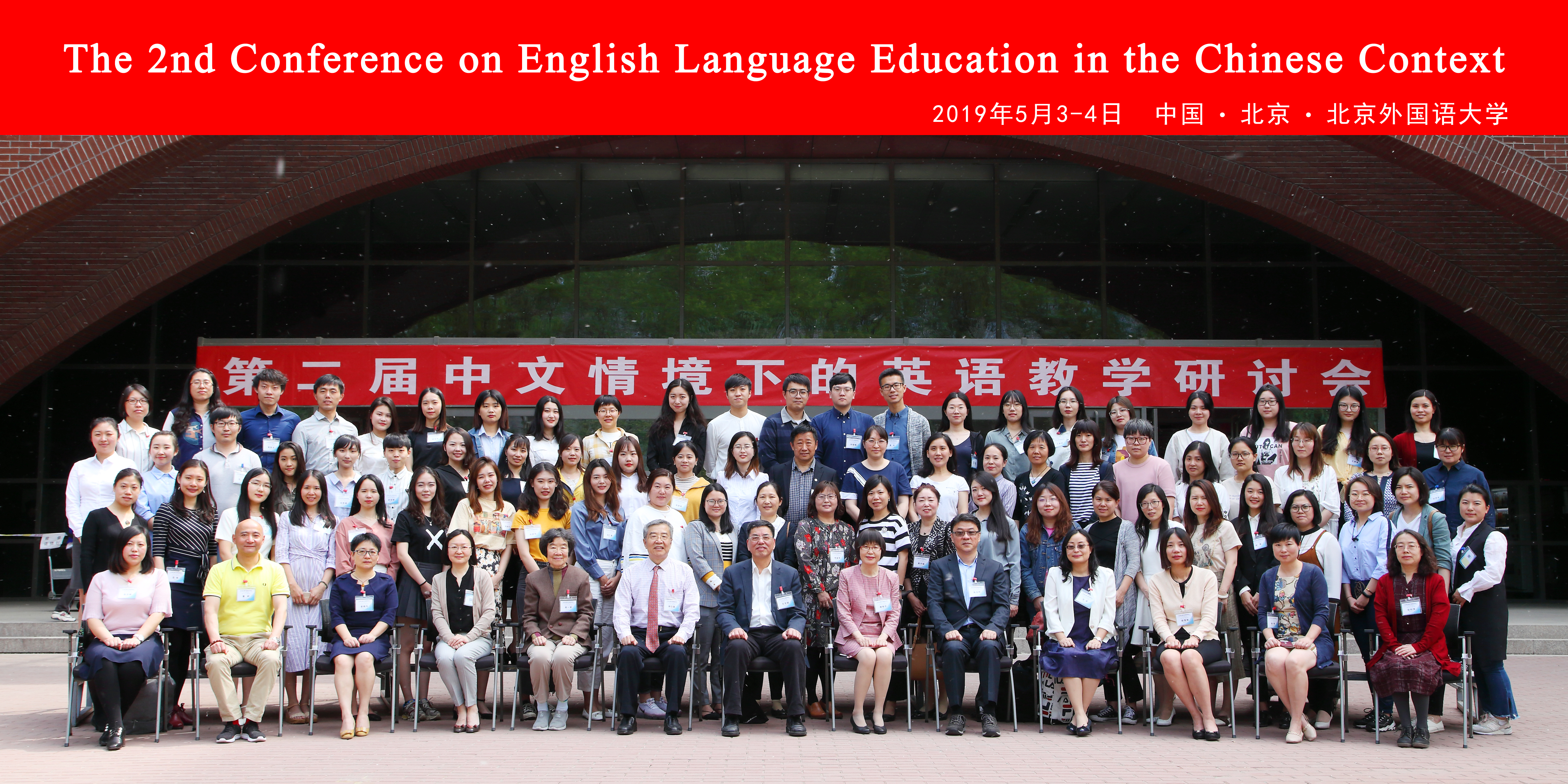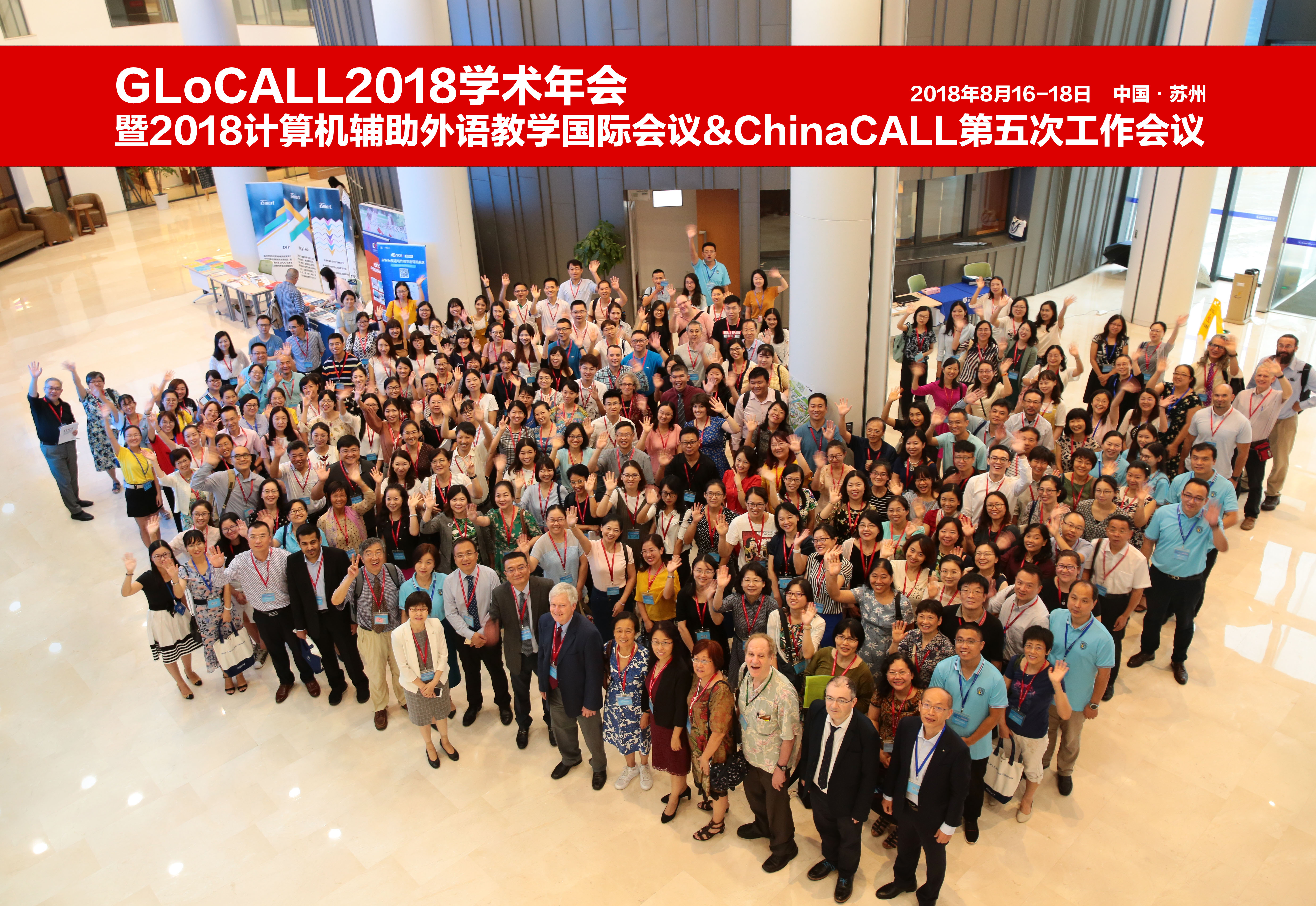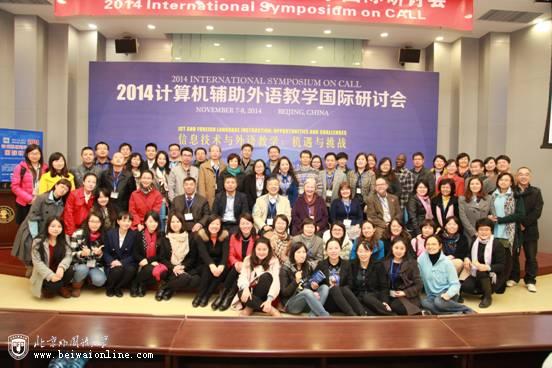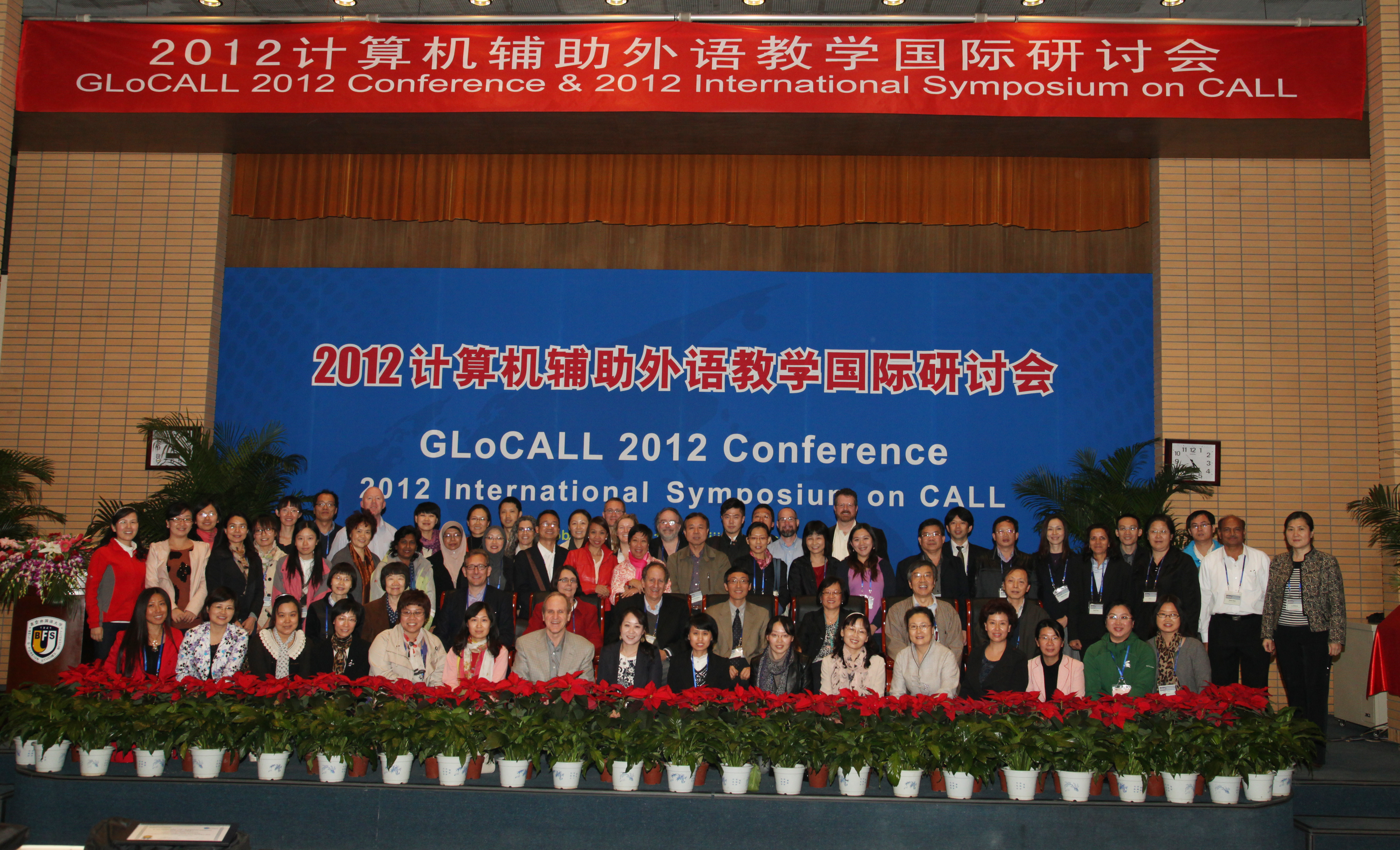Public Notices
ChinaCALL Conferences
- 2020 International Conference on CALL
- The 2nd Conference on English Language Education in the Chinese Context
- GLoCALL 2018 Conference & 15th ChinaCALL Conference 2018
- 2016 International Symposium on CALL
- 2014 International Symposium on CALL
- 2012 GLoCALL Conference & 2012 International Symposium on CALL more
2021 International Conference on CALL
2021(第17届)语言智能教学国际会议(线上)
4th Call for Papers
October 16-17, 2021
Hosted by China Computer-Assisted Language Learning Association (ChinaCALL), organized by the College of Foreign Languages of NUAA and the Institute of Online Education,the Artificial Intelligence and Human Languages Lab of BFSU, and hosted jointly by Journal of ChinaCALL,the 2021 International Conference on CALL will be held online from October 16th to 17th, 2021.The conference aims to share knowledge, skills, and ideas on the integration of technologies and language learning in the forms of keynote speeches and individual presentations. We welcome experts, teachers, and practitioners in CALL to join us!
Conference theme:
Technology and Well-being in Education
Our 17th conference will address pedagogical innovations and learner well-being in aspects of language teaching, learning and assessment, more specifically the pedagogical challenges and responsibilities during the Covid-19 pandemic and in the post pandemic era. We invite participants to present their current or recent research and to focus hereby on one or more of the following topics.
Technology and well-being in education
Technology and language education
CALL environment
CALL & teacher education
Web-based instructional design for foreign language instruction
Web-based language assessment
CALL learners
Modality of learning
Web-based and resource-driven learning
Using the Internet for cultural exchange
Corpus-based and data-driven learning
Mobile language learning
Fostering autonomous learning through technology
Lessons learnt in CALL
E-learning, collaborative learning and blended learning
Language MOOCs
Managing multimedia/hypermedia environments
CALL in vocational education
Using Artificial Intelligence in education
High quality research papers in English will be recommended to be published on Journal of China Computer-Assisted Language Learning (Journal of ChinaCALL, ISSN: 2748-3479), an international refereed publication, which is the official journal of ChinaCALL, an affiliate of China Association for Comparative Studies of English and Chinese. The journal, initiated by Beijing Foreign Studies University (BFSU) in January, 2020, also serves as an important publication of BFSU Artificial Intelligence and Human Languages Lab.
Selected research papers in English will also be suggested to other international journals, including Computer-Assisted Language Learning- Electronical Journal (CALL-EJ), International Journal of Computer-Assisted Language Learning and Teaching (IJCALLT), and Chinese Journal of Applied Linguistics. Besides, we also plan to publish online a conference proceeding of accepted papers.
Keynote speakers:(to be added)
-

1. Prof. Mark WARSCHAUER
Mark Warschauer is a Professor of Education at the University of California, Irvine, where he directs the Digital Learning Lab. Professor Warschauer has made foundational contributions to CALL through his pioneering research on computer-mediated communication, online learning, technology and literacy, laptop classrooms, the digital divide, automated writing evaluation, visual-syntactic text formatting, and, most recently, conversational agents for learning. His dozen books and more than 200 papers have been cited more than 40,000 times, making him one of the most influential researchers in the world in the area of digital learning. He is a Fellow of the American Educational Research Association and a Member of the National Academy of Education.
【Speech Title】
Conversational Agents and Language Development: A New Frontier in Children’s Learning
【Abstract】
Children learn languages best through social interaction, but opportunities for such interaction may be limited, especially in foreign language contexts. This presentation explores whether and how conversational agents, such as Siri or Google Assistant, can provide opportunities for social interaction that contribute to children’s language learning. Findings from two major studies are shared. In the first, a conversational agent assumes the role of a parent or mentor in a book-reading activity, asking the child questions about the story as it is being narrated. In the second, a character in a popular television show engages in dialogue with children about the show’s content. Both studies find that children learn more when interacting with a conversational agent, especially when trying to understand material in a second language. Taken together, the studies demonstrate both the feasibility and promise of using conversational agents to create interactive language learning experiences for children.
-
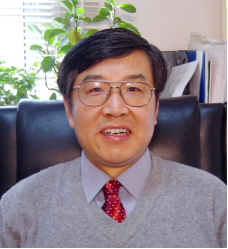
2. Prof. GU Yueguo
Prof. GU Yueguo is the Chief Scientist of Artificial Intelligence and Human Languages Lab, Beijing Foreign Studies University. Prof. GU is also the President of China Computer-Assisted Language Learning Association (ChinaCALL) and the founding Dean of the Institute of Online Education of BFSU. He served as Research Professor of Linguistics in the Chinese Academy of Social Sciences. His research areas include corpus linguistics, pragmatics, discourse analysis, the philosophy of language, and online education.
【Speech Title】
iCALL: Making Us Smart or Dumb
-

3. Prof. ZONG Chengqing
Mr. ZONG Chengqing received the PhD degree from the Institute of Computing Technology, Chinese Academy of Sciences (CAS) in 1998. He is a currently a Professor at the National Laboratory of Pattern Recognition, Institute of Automation, CAS. His research interests include natural language processing, machine translation, and linguistic cognitive computing as well. He has authored a book titled Statistical Natural Language Processing and co-authored a book titled Text Data Mining. Dr. Zong is also a fellow of Chinese Association for Artificial Intelligence (CAAI), a fellow of China Computer Federation (CCF), a member of the International Committee on Computational Linguistics (ICCL), the President of the Asian Federation on Natural Language Processing (AFNLP), and the Vice President of the Chinese Information Society of China. He has won many awards including the Second Prize of the State Preeminent Science and Technology Award of China (2015).
【Speech Title】
Study of Human Language Technology with Artificial Intelligence
【Abstract】
In recent years, with the rapid development of artificial intelligence-related technologies, human language technology (HLT) has received a lot of attention. The research methods on HLT have undergone disruptive changes. At the same time, the performance of HLT has been significantly improved, and the technology has been widely used in various fields of human society. So, what research contents does HLT include? What are the key and critical challenges and bottlenecks? What are the future directions and trend in HLT study? How can linguistic study adapt to the rapid development of the times and play a greater role in the wave of advancement of artificial intelligence technology? This talk will briefly analyze these issues and give my own thinking and understanding based on the research work I am engaged in.
-
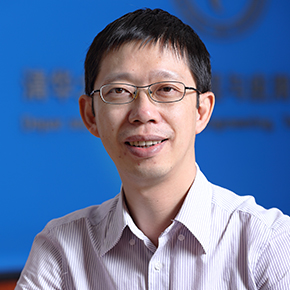
4. Prof. YU Xinjie
Prof. YU Xinjie is a Professor of the Department of Electrical Engineering at Tsinghua University. Prof. YU is the Head of the Online Teaching Guidance Expert Group of Tsinghua University, and he is also the creator of Tsinghua University’s first MOOC course, “Principles of Electric Circuit”. His research interests include magnetoelectric materials, pulse power supplies, intelligent optimization, wireless energy transfer.
【Speech Title】
Key Issues on Blended Teaching
-
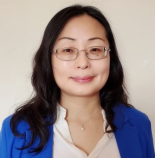
5. Dr. MA Qing
Dr. MA Qing is Associate Professor of Department of Linguistics and Modern Language Studies, The Education University of Hong Kong. She obtained PhD in Linguistics, University of Louvain, Belgium. She is the committee member of Hong Kong Association for Applied Linguistics (HAAL) as well as the China Association for Computer-Assisted Language Learning (ChinaCALL). Her research areas include L2 vocabulary acquisition, computer assisted language learning (CALL), mobile assisted language learning (MALL), and corpus linguistics.
【Speech Title】
From corpus literacy to corpus-based language pedagogy: effective integration of corpora into classroom teaching
【Abstract】
Corpus linguistics proves to be an innovative and effective approach to language studies and analyses. However, a corpus-based approach remains largely unknown to the majority of the professional teaching community. Language teachers generally appreciate the pedagogical potential of corpus, but rarely use it in classroom teaching. A key concept regarding corpus-based teacher training is corpus literacy (CL). Another key concept, largely ignored by researchers, is corpus-based language pedagogy (CBLP), which is defined as the ability to integrate corpus linguistics technology into classroom language pedagogy to facilitate language teaching. Based on the differentiation of CL and CBLP, I will present two relevant studies. In study 1, a new Corpus Technology Acceptance and Use (CTAU) model was introduced based on the Technology Acceptance Model (TAM). Furthermore, the theoretical model was empirically tested with 697 English teachers to determine the factors (e.g., system accessibility, subjective norm, prior experience, self-efficacies [corpus literacy, corpus-based language pedagogy]) that influence English teachers’ perceptions of usefulness and ease of use of corpus technology, which will in turn affect their intention to use it, and its actual uses for learning or teaching. Study 2 adopted a case study approach and investigated two English teachers’ engagement of acquiring CBLP, implementation and evaluation of their corpus-based classroom teaching.
-
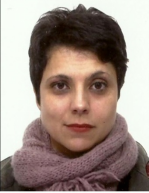
6. Elena Errico
Elena Errico is Associate Professor of Spanish and Translation Studies at the University of Genoa, Department of Foreign Languages and Cultures, where she is also coordinator elect of the study programmes. Her research interests focus on contact linguistics between English and Spanish, Chicano literature in translation and the pedagogy of interpreting.
【Speech Title】
Teaching remote interpreting remotely, or how to make a virtue out of necessity
【Abstract】
The aim of this presentation is to share an experience of how a combination of innovative learning techniques and remote interpreting technologies was harnessed in the Translation & Interpreting (T&I) MA programme taught at the University of Genoa.
Well before the COVID-19 pandemic outburst, the University of Genoa had set up a workgroup on teaching and learning techniques (GLIA) which fostered innovation in instructional design. In 2019, thanks to GLIA's support, the T&I MA implemented simulation-based training in legal interpreting adopting a social constructivist approach (cfr. Kiraly 2000). This means that each and every interpreting simulation, from script drafting to the role play and feedback sessions, were carefully prepared by a team of experts which included a pedagogist with expertise in instructional design, a psychologist and a legal professional in addition to the interpreting instructor.
Since early 2020, due to health emergency restrictions, all teaching has been online and, as a result, computer-assisted ad hoc interpreting platforms (“digital interpreting booths”) have been adopted along with live streaming classroom software. The experiment has proved so effective that it has been decided to extend this teaching mode beyond the emergency as a proactive response to the post-COVID employability scenario, since it is very likely that remote interpreting services will play the lion's share on the interpreting market in the years to come, due to improved technology and comparatively low costs, and despite the serious challenges they pose for interpreting professionals.
References Kiraly, D. (2000): A Social Constructivist Approach to Translator Education; Empowerment from Theory to Practice, Manchester, UK & Northampton MA, St. Jerome Publishing.
-

7. Dr. Marcin Opacki
Dr. Marcin Opacki (Ph.D.) is an assistant professor at the University of Warsaw. His research interests include generative syntax, corpus linguistics, and experimental psycholinguistics. Throughout his career, Dr. Opacki has been involved in several projects including the Polish Valency Dictionary (CESAR, NEXT, CLARIN-ERIC), a study of bilingual migrant children (NPRH), the development of a framework for CLIL in vocational education (Erasmus+), an evaluation of language teaching in Polish primary schools (BENJA), the development of a staff training program in corpus linguistics for academics (NCBiR), and the development of a CLIL-based program to foster critical thinking among high school students (NCBiR).
【Speech Title】
Perfunctory gamification in the world of second language learning
【Abstract】
Gamification is a trend that is steadfastly increasing in popularity in several fields that involve learning. Several concepts borne out of this have recently been applied with the intent to facilitate second language acquisition. This is most notably visible in the form of apps and online teaching courses that take advantage of mechanics that are drawn directly from video game design principles.
However, while tools of this kind will appeal to some learners (e.g. dopamine-reliant social media users), others will find them ineffective as language study aids.
In this talk, I will argue that this is strictly due to limiting gamification features to only an easily implementable subset (leader boards, levelling progression, trophy achievements, etc.), while features that offer meaningful content (e.g. narrative and ludological structure, motivational level design, player agency, etc.) are typically left out due to budgetary, programming, or scheduling constraints. Such app or course design – which I dub perfunctory – will leave some users feeling frustrated by what amounts to false advertising, contributing to a decrease in motivation.
I will conclude the talk by presenting what I consider a set of tentative solutions to the problem based on a review of currently available research in the field.
Important dates:
| From May 5, 2021 | Opening of proposal submission |
| August 15, 2021 | Deadline for proposal submission |
| From August 15, 2021 | Notices of acceptance sent out |
| August 31, 2021 | Deadline for regular registration |
| October 13, 2021 | Release of conference program |
| October 16-17, 2021 | Plenary & concurrent sessions |
Conference information:
1. Please click “Registration” on the conference website to register and submit abstracts ONLINE.
2. Date: October 15-17, 2021
3. Venue: Nanjing University of Aeronautics and Astronautics (NUAA), Nanjing, China
4. Conference sessions: The conference will be composed of keynote speeches (50min per session) and oral presentations (20-25min per session).
5. Working languages: English and Chinese, preferably English.
6. Registration Fee: The registration fee is RMB¥800 each for the regular participant, and RMB¥400 each for the full-time postgraduate student. Please kindly note that student participants need to present their student IDs upon registration. The registration fee includes the cost of conference organization and the conference information package. Once paid, it will not be refunded. The registration fee has to be prepaid, before September 16, 2021. Please kindly note that regular participants who fail to pay by due date will not be arranged to give presentations. On-site payment will only be available for listeners who decide to come on short notice. •Account Name: 南京航空航天大学 •Bank Name: 交通银行南京御道街支行 •Account No.: 320006639010149000354
7. Invoice: Please fill in the invoice details online upon registration.
8. Accommodation: The hotel information will be released on the conference website in due course. Please kindly note that the conference organizing committee is NOT responsible for hotel reservation, and the hotel expenses are NOT included in the registration fee.
Abstract submission guideline:
1. Deadline of submission: Abstract must be submitted online before August 15, 2021. Each leading author (first author) can submit up to 2 abstracts.
2. The Body of Abstract: Maximum word count is 300. (Title, authors, affiliations and references are not included in word limit.) The abstract should be composed of research background, objectives, methods and outcomes. Please include the grant or other support information for your research, if appropriate.
3. After abstracts are accepted, please send full papers to conference@beiwaionline.com.
Contact us:
E-mail: conference@beiwaionline.com
Tel: (86) 010-88818307
Fax: (86) 010-68471772
Conference Organizing Committee
September 2021


